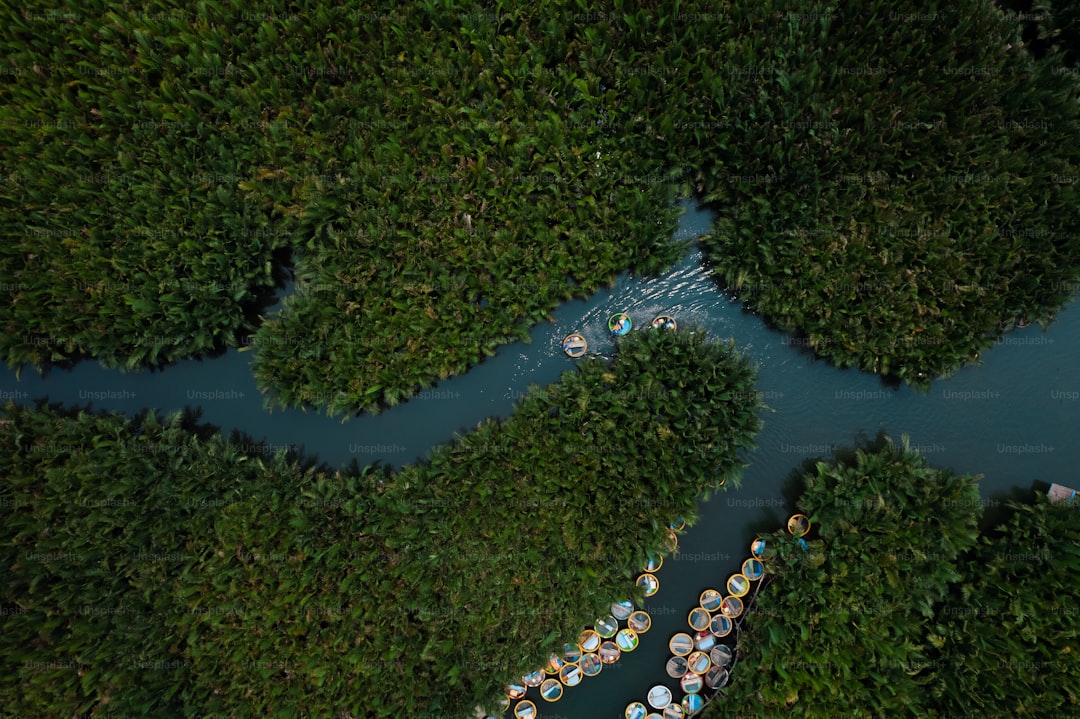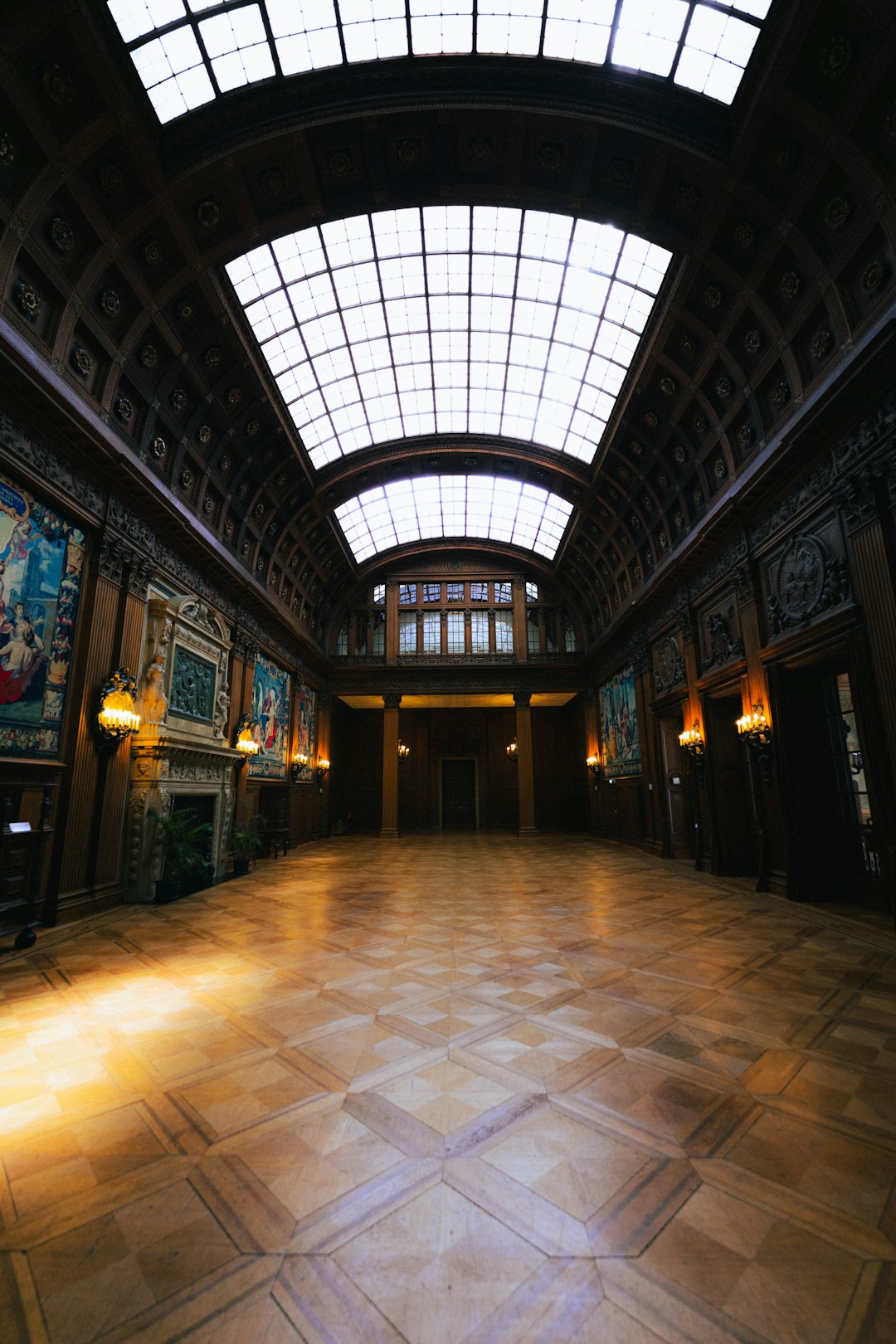Carbon Neutral Paradise: Terra Verde's Sustainable Luxury Revolution

Paradise with Purpose
Nestled in the hills of Costa Rica's Guanacaste Province, Terra Verde Eco Resort emerges from the tropical canopy like a vision of harmonious coexistence. This 45-suite luxury resort hasn't just achieved carbon neutrality – it's become a living laboratory for sustainable hospitality that generates more energy than it consumes while providing guests with an uncompromisingly luxurious experience.
The Founder's Mission
Dr. Carmen Rodriguez, a former environmental engineer turned hospitality entrepreneur, purchased the 50-acre site in 2018 with a radical vision: create a resort that would be completely regenerative, giving back more to the environment than it took.
"Traditional luxury hospitality is fundamentally extractive," Rodriguez explains from her office, which overlooks solar panels disguised as artistic installations. "We consume resources, generate waste, and ask guests to pay premium prices for experiences that ultimately damage the places they've come to enjoy. I knew we could do better."
Rodriguez invested $32 million of her own fortune, accumulated from selling her renewable energy consulting firm, into creating what she calls "regenerative luxury" – a hospitality model that enhances rather than depletes natural ecosystems.
Building with Nature
Construction began in 2019 using revolutionary sustainable building techniques. The resort's architecture, designed by acclaimed green architect Maria Santos, integrates seamlessly with the natural landscape. Guest suites are elevated on stilts to minimize ground disturbance, while living roofs support native plant species and provide natural insulation.
Every building material was carefully selected for minimal environmental impact. Reclaimed tropical hardwood from responsibly managed forests forms the structural elements, while locally sourced volcanic stone creates dramatic accent walls. Even the concrete incorporates recycled materials and carbon-capturing additives.
"We approached construction like ecosystem restoration," explains Santos. "Instead of clearing land, we designed around existing trees. Rather than fighting the climate, we used natural ventilation and thermal mass to maintain comfort with minimal energy."
Energy Independence Revolution
Terra Verde's energy system represents a masterclass in renewable integration. The resort generates 140% of its energy needs through a sophisticated combination of solar, wind, and micro-hydro systems.
Roof-mounted solar panels, designed to mimic the natural patterns of leaves, generate 800 kWh daily. Three small wind turbines, positioned to catch prevailing Pacific breezes, contribute another 200 kWh. The crown jewel is a micro-hydro system that harnesses a seasonal stream, producing 300 kWh during Costa Rica's wet season.
Excess energy is stored in Tesla Powerwall batteries and sold back to the national grid, generating revenue that funds local conservation projects. "We're not just carbon neutral," Rodriguez notes proudly. "We're carbon negative, offsetting approximately 150 tons of CO2 annually through our energy surplus alone."
Water as a Precious Resource
Water management at Terra Verde showcases innovative conservation technology. The resort collects and treats 100% of its water needs on-site through an integrated system of rainwater harvesting, greywater recycling, and natural wastewater treatment.
Guest suites feature low-flow fixtures and smart sensors that detect leaks instantly. Shower water is heated using solar thermal systems, while greywater from sinks and showers nourishes the resort's organic gardens. Blackwater undergoes treatment in constructed wetlands that double as stunning water features.
The resort's infinity pool, seemingly carved from volcanic rock, uses a natural filtration system combining UV sterilization and ozonation instead of traditional chlorine. "Guests often don't realize they're swimming in some of the purest water in Costa Rica," Rodriguez smiles.
Farm-to-Table Excellence
Terra Verde's commitment to sustainability extends to every meal. The resort operates a 5-acre organic farm that supplies 80% of its restaurant's ingredients. Executive Chef Marco Fernandez, formerly of Michelin-starred restaurants in San Sebastian, creates innovative cuisine that celebrates local flavors while meeting international luxury standards.
"Sustainable doesn't mean sacrificing quality," Fernandez explains while harvesting heirloom tomatoes. "When ingredients are this fresh and flavorful, my job becomes easier. Guests taste the difference immediately."
The farm employs permaculture principles, using companion planting and natural pest control to maintain soil health. Composting systems transform kitchen waste into nutrient-rich soil amendments, creating a closed-loop system that eliminates food waste.
What the farm can't provide comes from local producers within a 50-kilometer radius. The resort pays premium prices to small farmers who use sustainable practices, supporting the local economy while ensuring ingredient quality.
Wildlife Conservation Partnership
Terra Verde partners with the Guanacaste Conservation Area to protect 200 additional acres of primary forest. The resort funds wildlife corridors that connect fragmented habitats, enabling animal migration between protected areas.
Guests regularly encounter howler monkeys, scarlet macaws, and even occasional jaguars on the property. Rather than viewing wildlife as entertainment, the resort emphasizes education and conservation. Marine biologist Dr. Ana Gutierrez leads daily nature walks, sharing insights about ecosystem interconnections and conservation challenges.
"Every guest becomes a conservation ambassador," Dr. Gutierrez explains. "They leave understanding that luxury travel can support rather than threaten the places they visit."
The resort contributes $100 per guest night to local conservation efforts, funding everything from anti-poaching patrols to environmental education programs in nearby communities.
Guest Experience Without Compromise
Despite its environmental focus, Terra Verde doesn't ask guests to sacrifice comfort. Each suite features air conditioning powered by renewable energy, high-speed internet via satellite connection, and marble bathrooms with rainfall showers.
The infinity pool complex includes a swim-up bar serving organic cocktails made with locally distilled spirits. The spa uses only natural products made from plants grown on the property, while the fitness center offers yoga classes at sunrise and sunset.
"Sustainability enhances rather than limits the guest experience," Rodriguez observes. "People come here for luxury, but they leave having experienced something deeper – a connection to place that's both restorative and inspiring."
Guest feedback consistently highlights the property's unique character. Reviews praise not only the luxurious accommodations but also the meaningful environmental education and sense of contributing to conservation efforts.
Economic Impact and Pricing
Terra Verde commands rates averaging $850 per night, with suites reaching $1,200 during peak season. Despite premium pricing, the resort maintains 82% occupancy year-round, demonstrating strong market demand for sustainable luxury.
The property generates significant local economic impact. It employs 120 local residents at wages 40% above regional averages, while purchasing commitments support 25 local farms and artisan cooperatives.
"Sustainable hospitality isn't just good for the environment," Rodriguez explains. "It creates economic opportunities that strengthen communities and preserve cultural traditions."
Industry Recognition and Influence
Terra Verde has received numerous sustainability awards, including:
- 2023 Global Sustainability Award from the International Luxury Travel Association - Carbon Negative Certification from the Costa Rican Chamber of Tourism - Excellence in Sustainable Tourism Award from the United Nations Environment Programme
More significantly, the resort has inspired similar projects throughout Central America. Rodriguez regularly consults with developers seeking to replicate Terra Verde's regenerative model.
Challenges and Solutions
The path to sustainability hasn't been without obstacles. Initial construction costs exceeded traditional resorts by 35%, while sophisticated systems require specialized maintenance expertise.
"Finding staff who understand both luxury hospitality and environmental systems was challenging," Rodriguez admits. "We invested heavily in training, sending team members to sustainability programs in Europe and North America."
Guest education also required careful balance. Early feedback suggested some visitors felt overwhelmed by environmental messaging. The resort now integrates sustainability information naturally into experiences rather than formal presentations.
Future Innovations
Terra Verde continues pushing sustainability boundaries. Current projects include:
- Carbon capture landscaping: Planting native species that sequester additional atmospheric carbon - Waste-to-energy systems: Converting organic waste into biogas for cooking - Electric vehicle fleet: Solar-powered transportation for guest excursions - Regenerative agriculture expansion: Increasing on-site food production to 95%
Replicating the Model
Rodriguez has open-sourced many of Terra Verde's innovations, sharing technical specifications with other developers. "Sustainability can't be proprietary," she argues. "The more properties adopt these practices, the greater our collective impact."
The resort hosts monthly "Regenerative Hospitality Workshops" for industry professionals, sharing practical knowledge about sustainable systems integration and guest experience design.
Measuring True Success
Beyond financial metrics, Terra Verde tracks environmental impact rigorously. Independent audits confirm the resort's carbon-negative status, while biodiversity monitoring shows increasing wildlife populations on the property.
"Success isn't just occupancy rates and revenue," Rodriguez reflects. "It's knowing that every guest contributes to environmental restoration rather than degradation. We're proving that luxury and sustainability aren't contradictory – they're complementary."
The Ripple Effect
Terra Verde's influence extends far beyond its boundaries. Guests return home with heightened environmental awareness, often making sustainable choices in their daily lives. The resort's social media presence showcases sustainable practices to hundreds of thousands of followers worldwide.
Local communities have embraced sustainable practices inspired by the resort's example. Nearby farms have adopted organic methods, while other businesses invest in renewable energy systems.
Lessons for the Industry
Terra Verde's success offers valuable insights for hospitality leaders:
Invest in infrastructure: Sustainable systems require upfront capital but generate long-term savings and differentiation.
Integrate, don't compromise: Environmental responsibility can enhance rather than limit luxury experiences.
Educate thoughtfully: Guests appreciate sustainability when it's presented as enhancement rather than restriction.
Measure comprehensively: Track environmental impact alongside financial performance.
Share knowledge: Industry-wide adoption amplifies individual efforts.
The Continuing Mission
As climate change intensifies and travelers become increasingly environmentally conscious, Terra Verde represents hospitality's future rather than an idealistic experiment. The resort proves that luxury travel can be a force for environmental healing rather than damage.
"We're not just running a resort," Rodriguez concludes, watching scarlet macaws nest in trees preserved during construction. "We're demonstrating that business can be regenerative, that profit and purpose can align, and that travelers want to be part of solutions rather than problems."
Terra Verde Eco Resort stands as a beacon of possibility, showing that the hospitality industry can embrace environmental responsibility without sacrificing the luxury experiences that define premium travel. In a world hungry for both comfort and conscience, it offers a glimpse of tourism's sustainable future – one where paradise preserved is paradise truly experienced.



